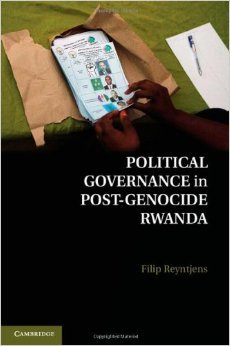
Filip Reyntjens analyzes political governance in post-genocide Rwanda and focuses on the rise of the authoritarian Rwandan Patriotic Front (RPF). In the aftermath of the 1994 Rwandan genocide, the RPF has employed various means – rigged elections, elimination of opposition parties and civil society, legislation outlawing dissenting opinions, and terrorism – to consolidate power and perpetuate its position as the nation's ruling party. Although many international observers have hailed Rwanda as a “success story” for its technocratic governance, societal reforms, and economic development, Reyntjens complicates this picture by casting light on the regime's human rights abuses, social engineering projects, information management schemes, and retributive justice system.

Filip Reyntjens is professor of law and politics at the Institute of Development Policy and Management, University of Antwerp. In addition to ongoing research on the contemporary history of central Africa, he works on hybrid governance in the Congo borderlands, the relationship between aid and authoritarianism in Sub-Sahara Africa, and the quality of democracy in East Africa. Trained as a constitutional lawyer, his study of politics is also informed by his work as a human rights activist.
Co-sponsored by the Kellogg Institute for International Studies and the Kroc Institute for International Peace Studies.